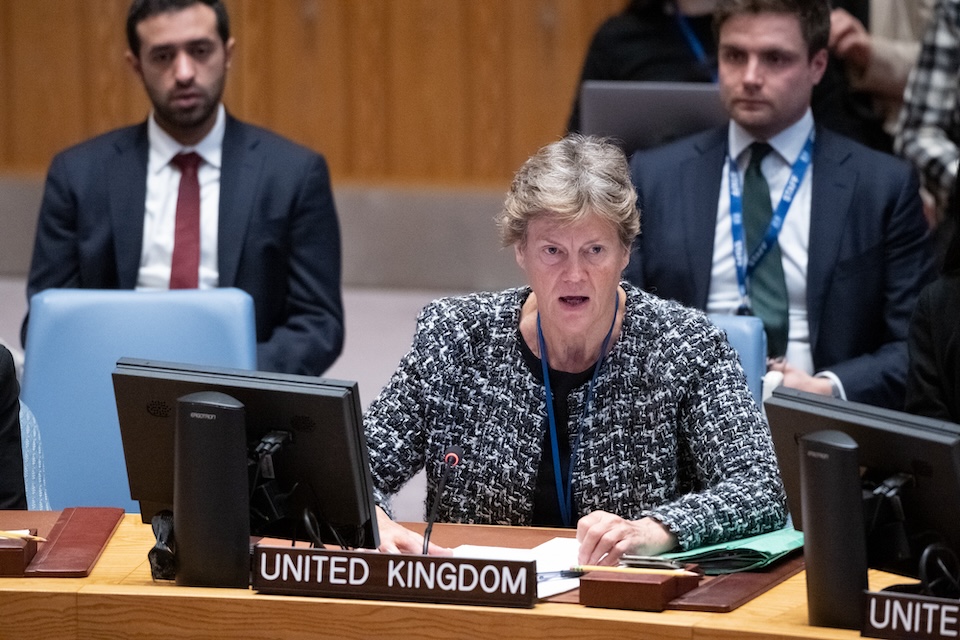The United Kingdom is committed to working together to fight Transnational Organised Crime: UK statement at the UN Security Council
Statement by Ambassador Barbara Woodward at the UN Security Council meeting on Transnational Organised Crime.

Thank you, President, and thank you for calling this valuable, Open Debate. I also thank the Secretary-General and our other distinguished and thought-provoking briefers this morning.
The United Kingdom agrees with the Secretary-General that we can deepen cooperation to tackle the complex threat of Transnational Organised Crime and find global solutions to it.
The UK is pleased to be working with the Ecuadorian Government and with many other governments across the world in these efforts.
I would like to stress three points.
First, as we’ve heard, the impact of organised crime globally is significant. Organised criminal networks are exacerbating conflict, instability and the negative effect of climate change around the globe, taking advantage of geopolitical, economic and technological shifts.
Organised crime, corruption and illicit finance drain resources and undermine societies. Online threats including cybercrime, fraud and new technologies such as AI are exacerbating these risks.
Second, without the security that comes from effectively tackling Transnational Organised Crime, economic development, state-building and poverty reduction is really not possible. Crime and gender considerations should be incorporated into development and security approaches.
Traditional law enforcement should be combined with wider efforts to address the drivers of crime, for example, poor governance or poverty, to address the enablers of crime, for example, illicit finance or corruption, and to address the harms that crime produces, including by protecting victims and returning assets.
The United Kingdom is committed to the UN Convention Against Transnational Organized Crime, and the UNODC. We funded the development of an UNODC Organised Crime Strategy Toolkit to help Member States develop their own national organised crime strategies. We are pleased that many countries are using the toolkit.
Finally, President, we welcome the efforts by the UN and other organisations to adapt to the escalating challenges and better coordinate with wider security, development and economic work including alongside the private sector and civil society. The Council and the wider UN can provide further leadership on this and support its acceleration.
The United Kingdom fully supports both the Women and Youth, Peace and Security agendas to help build community resilience and reduce recruitment into organised crime groups.
President, in closing, thank you for this debate, and we remain committed to working together to fight and prevent Transnational Organised Crime.
Thank you.